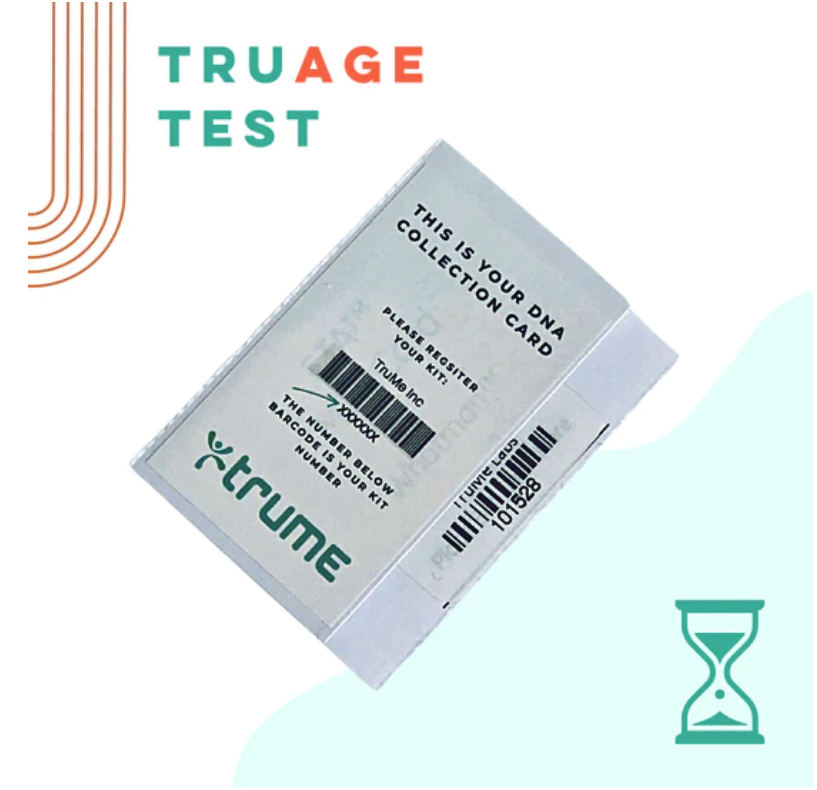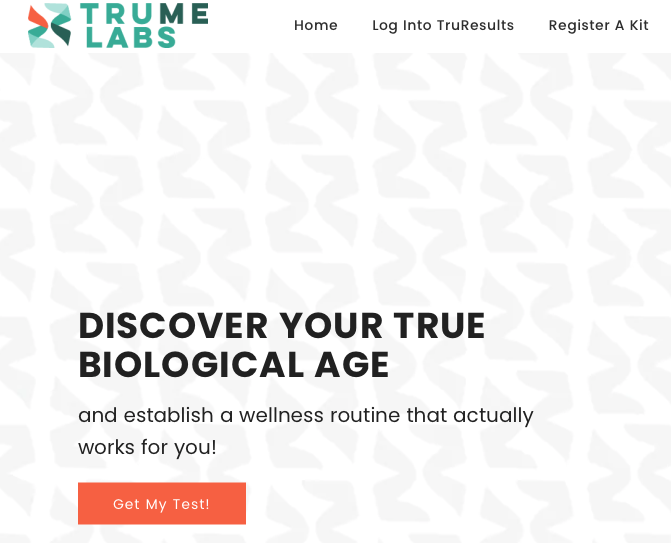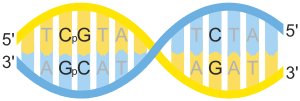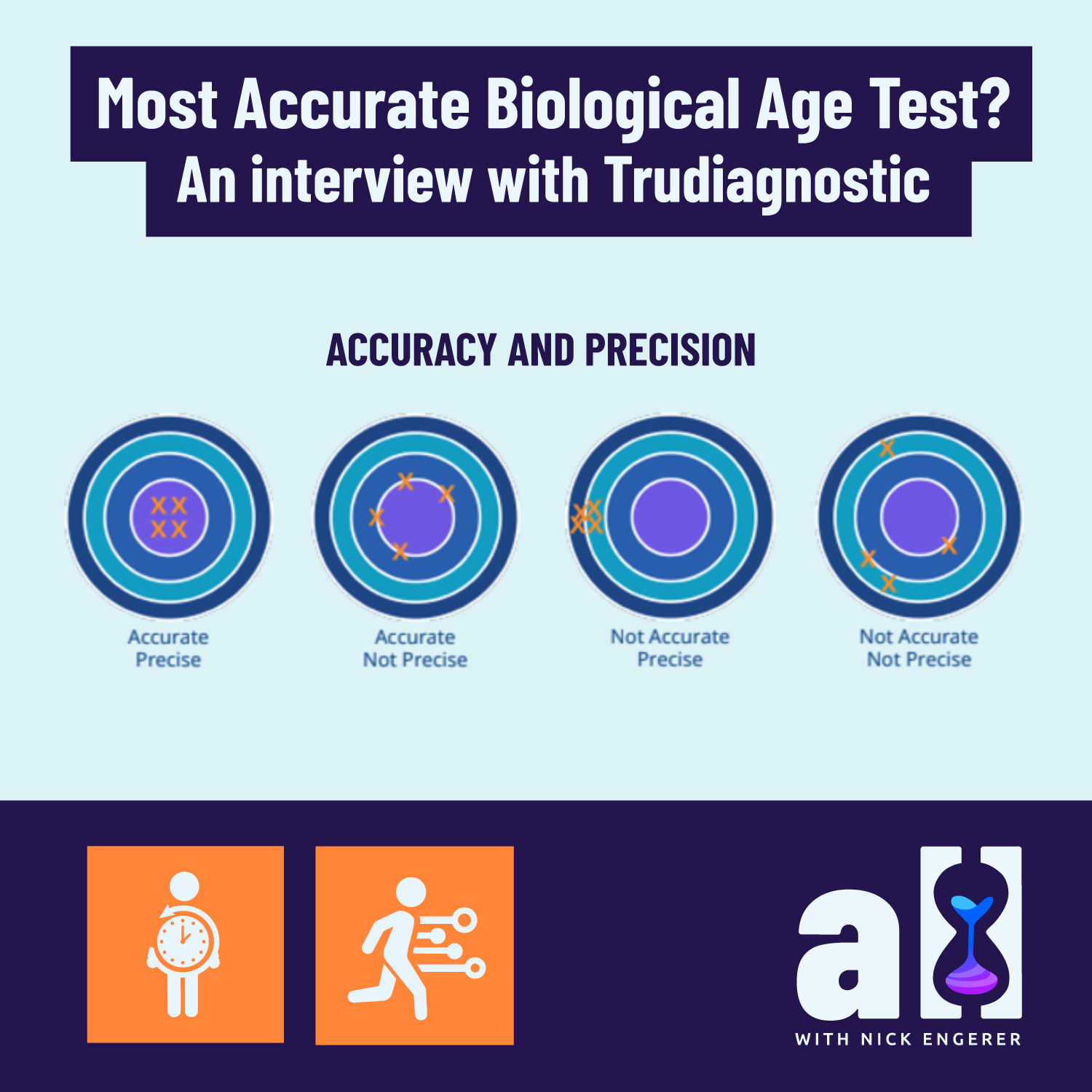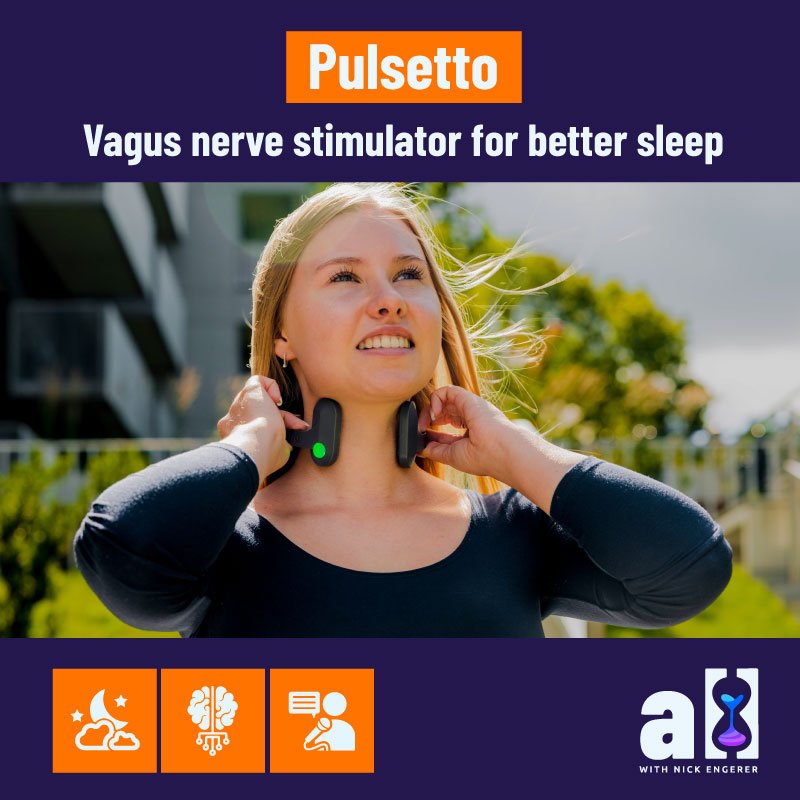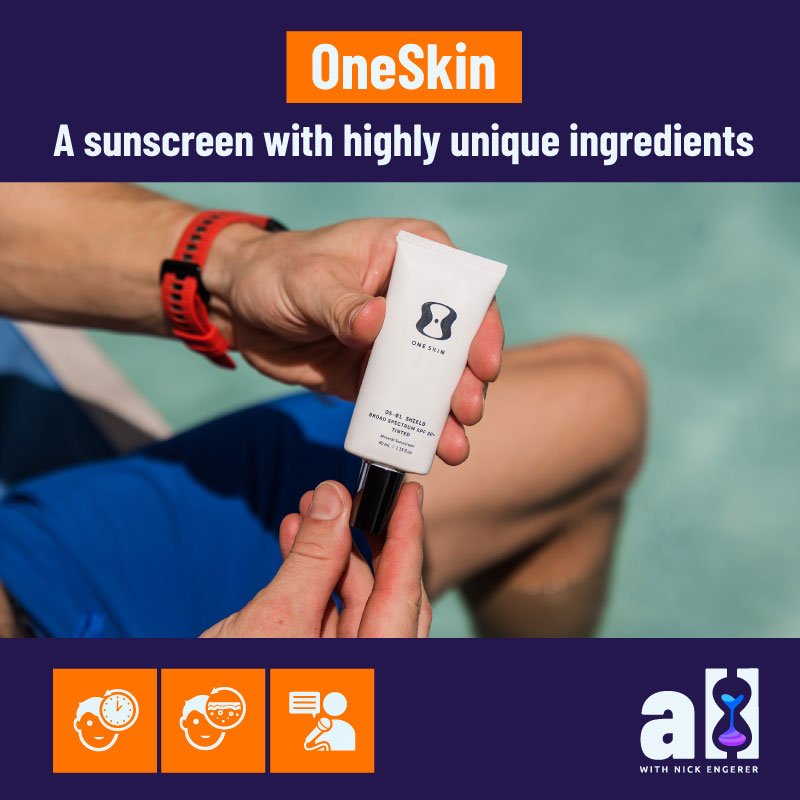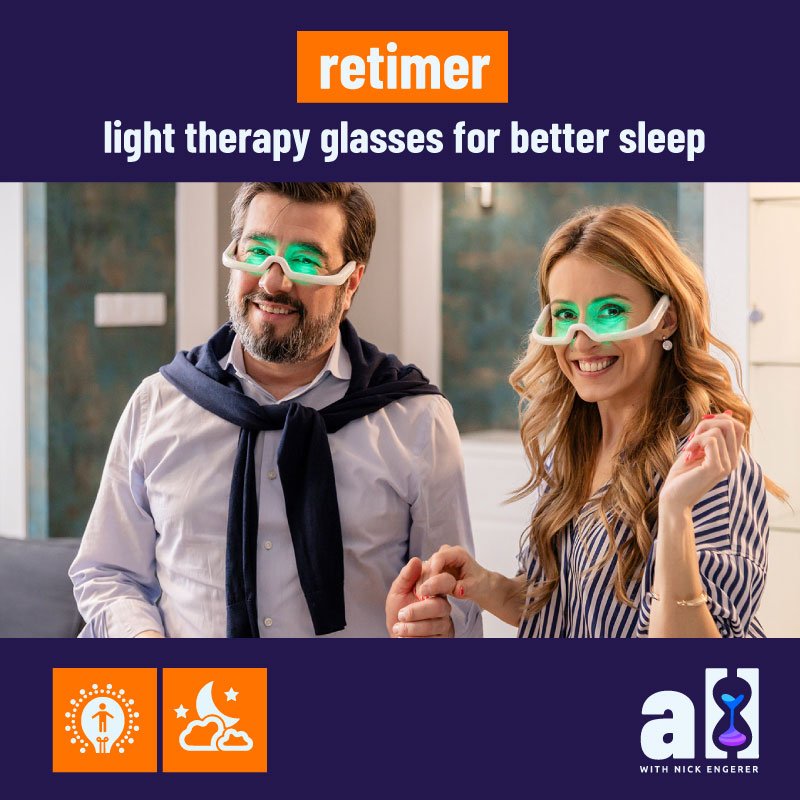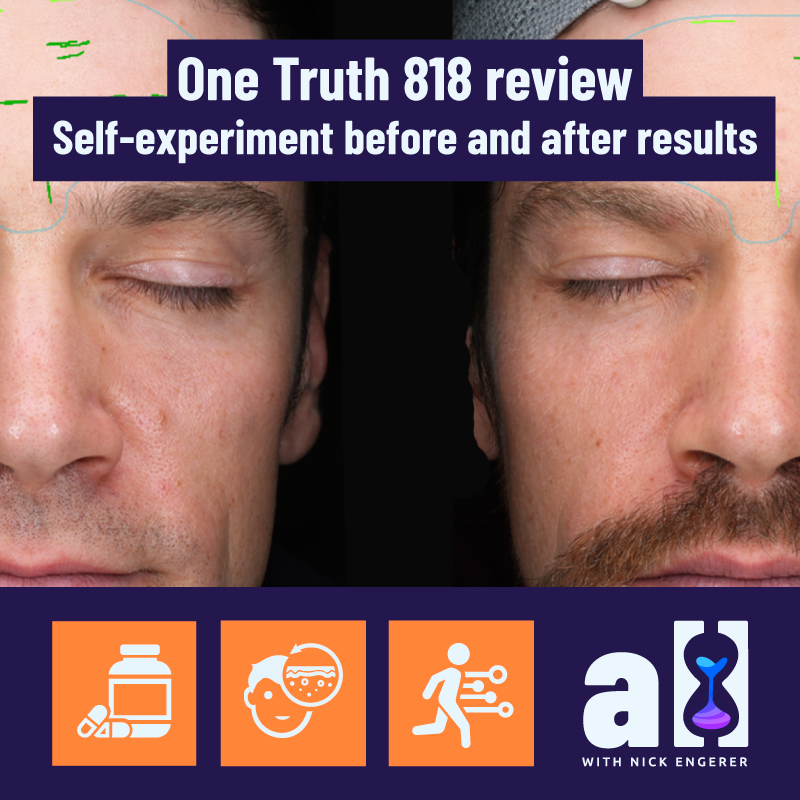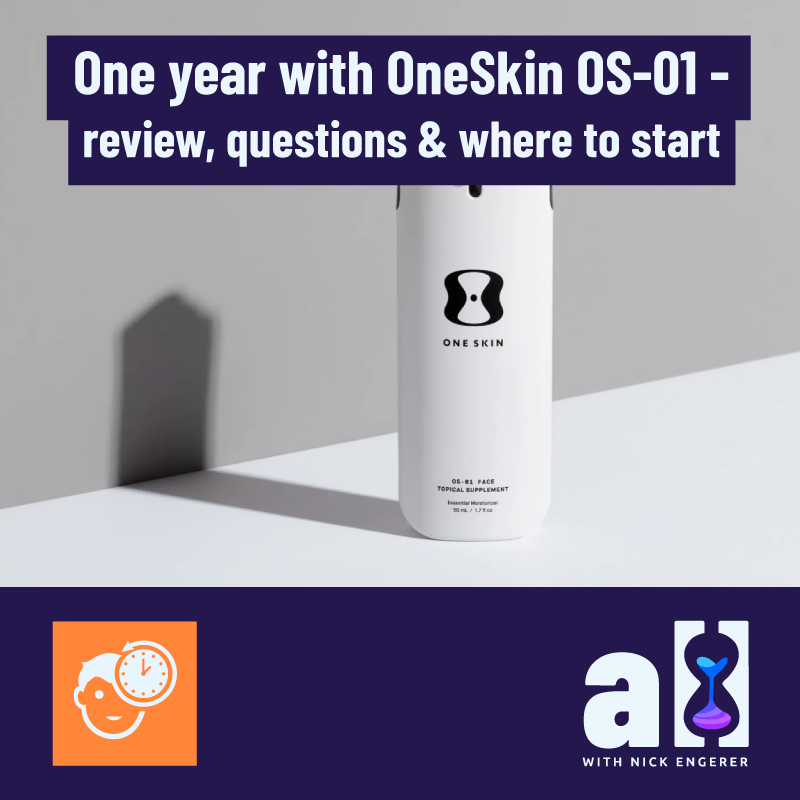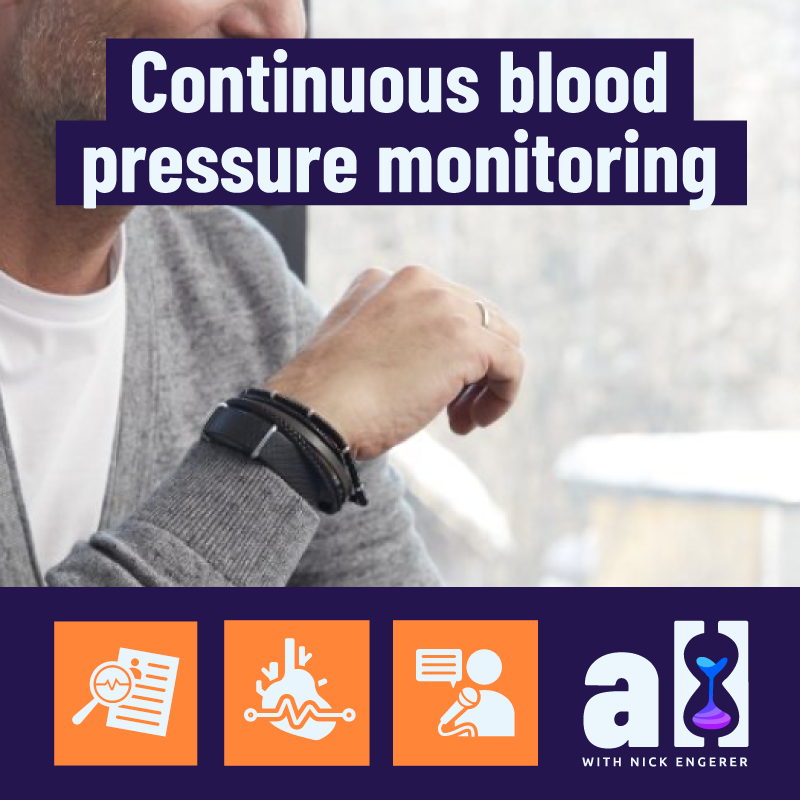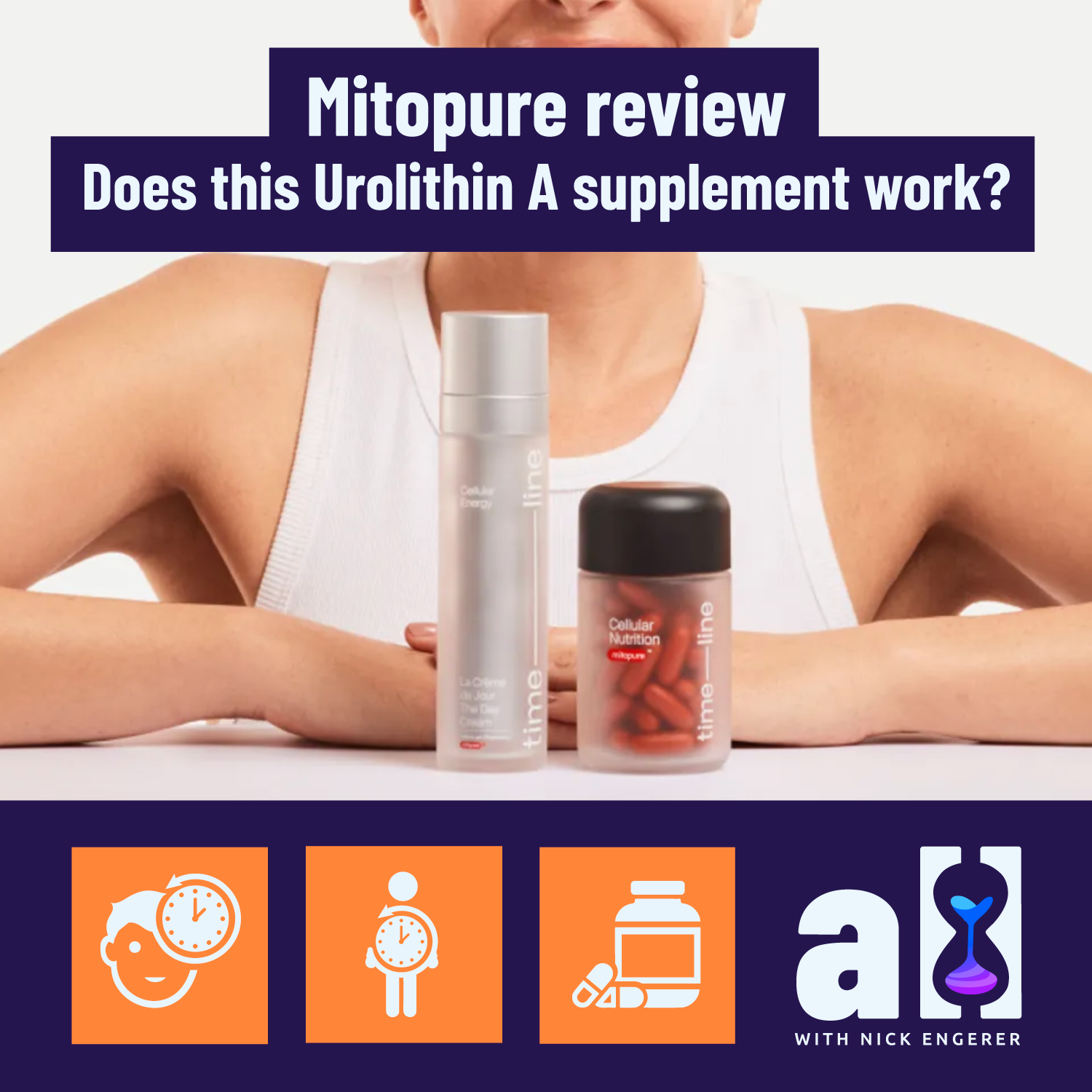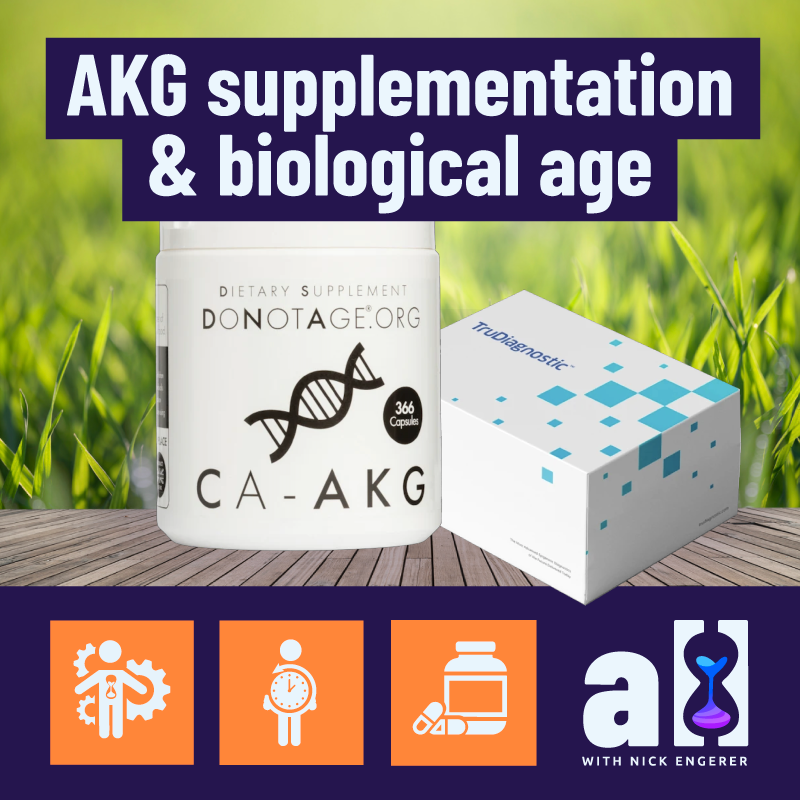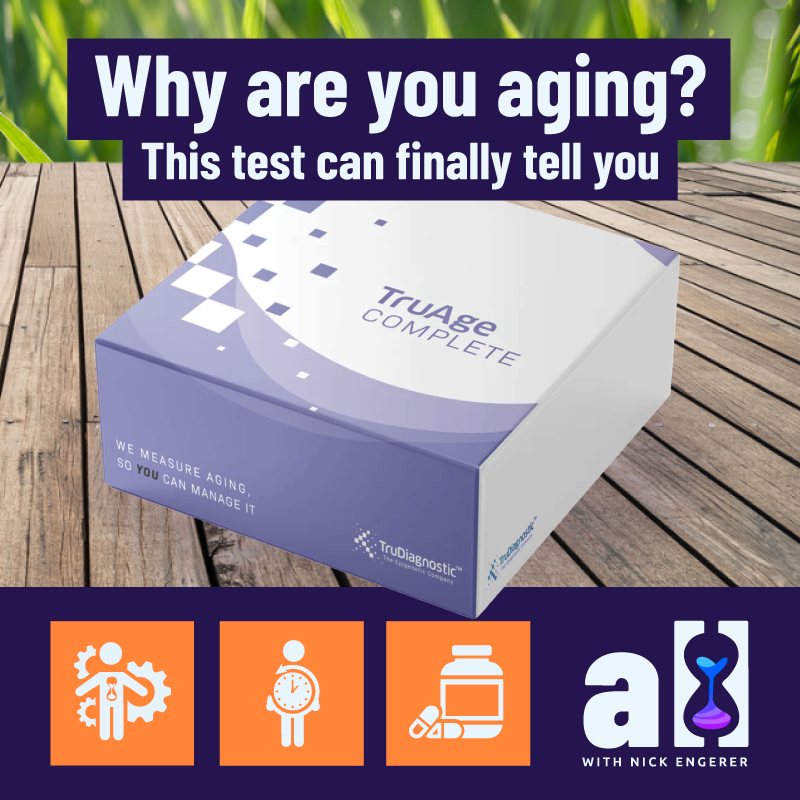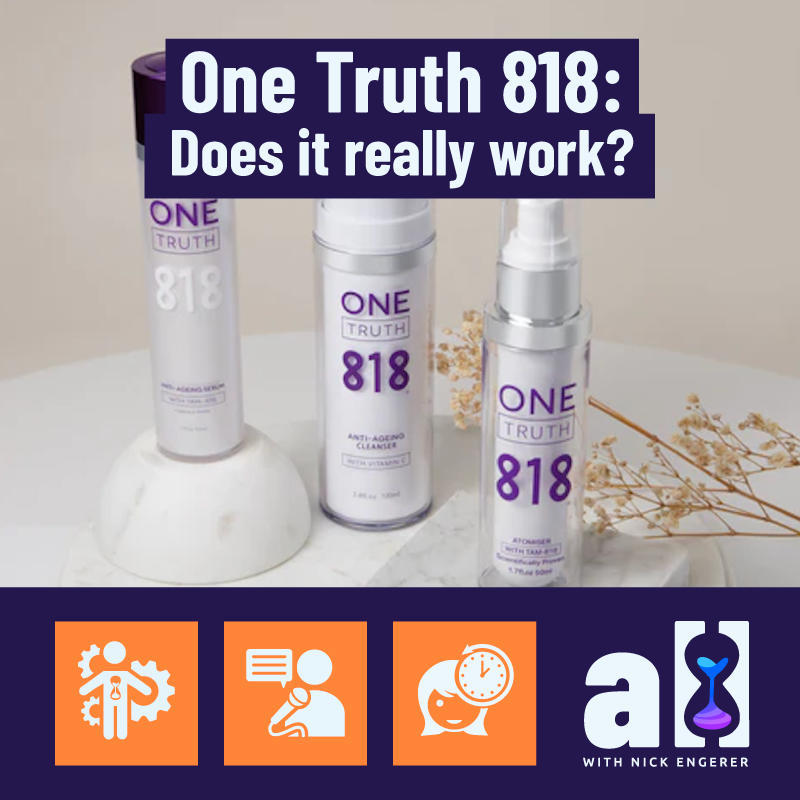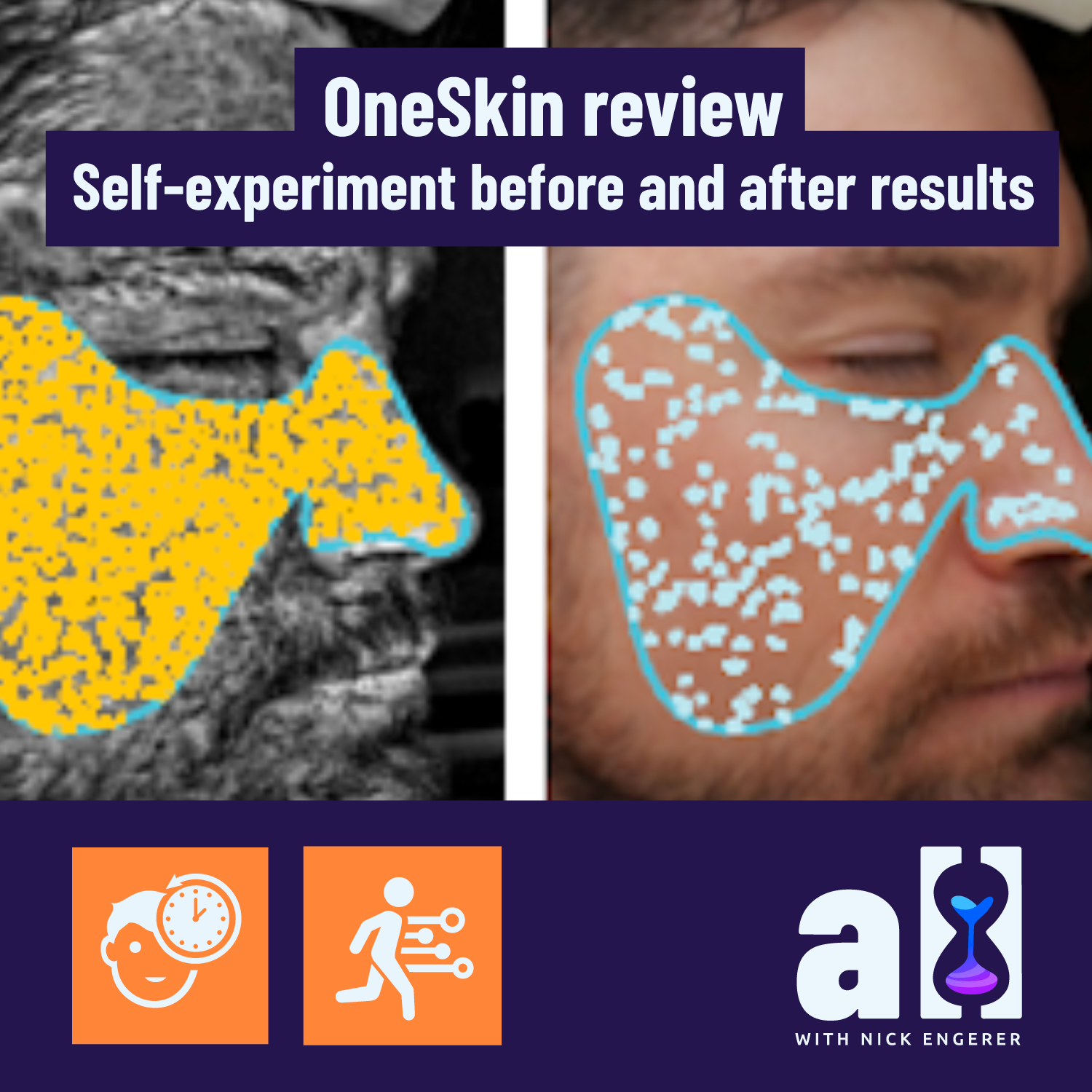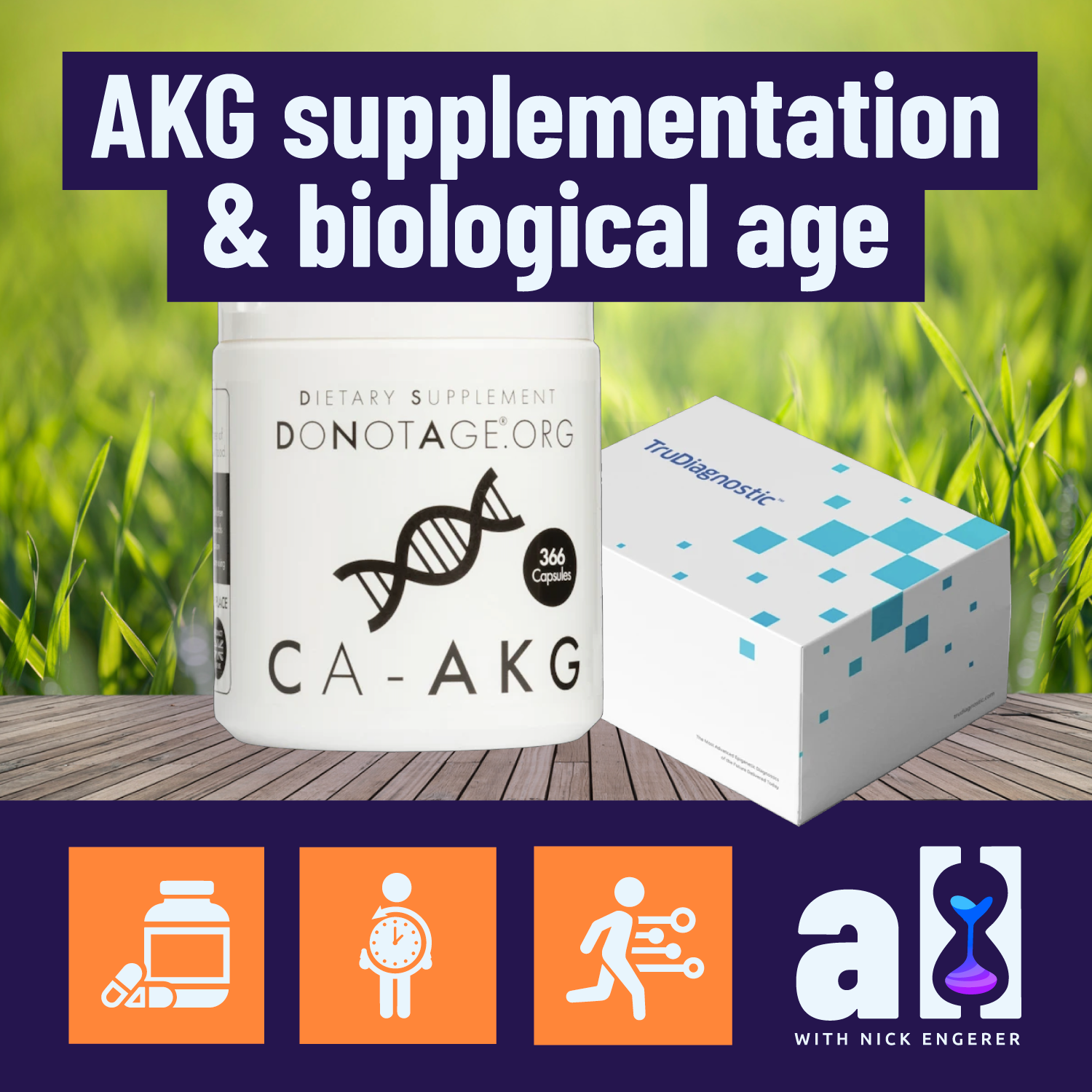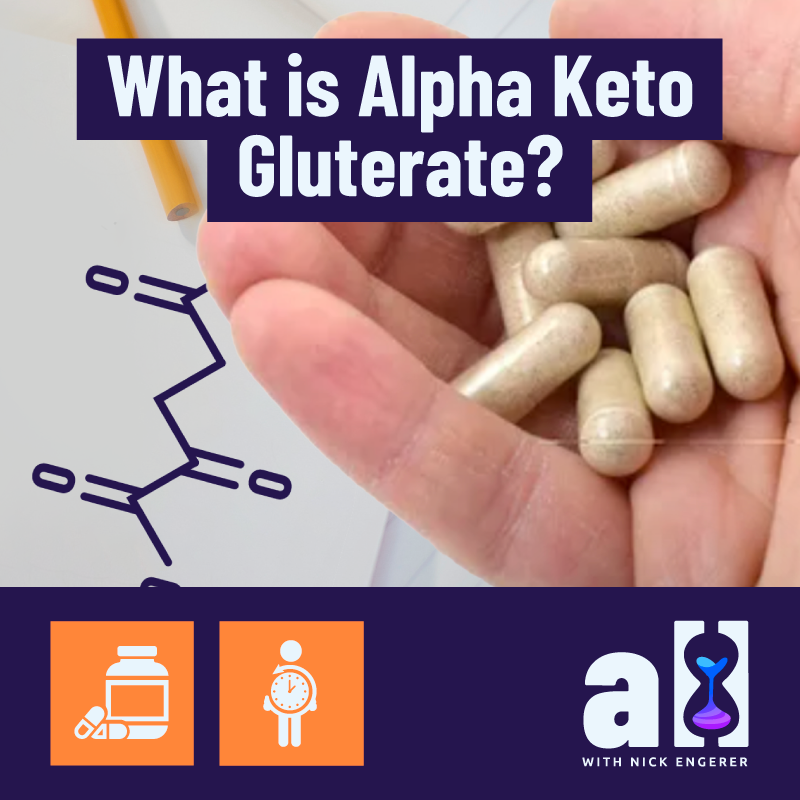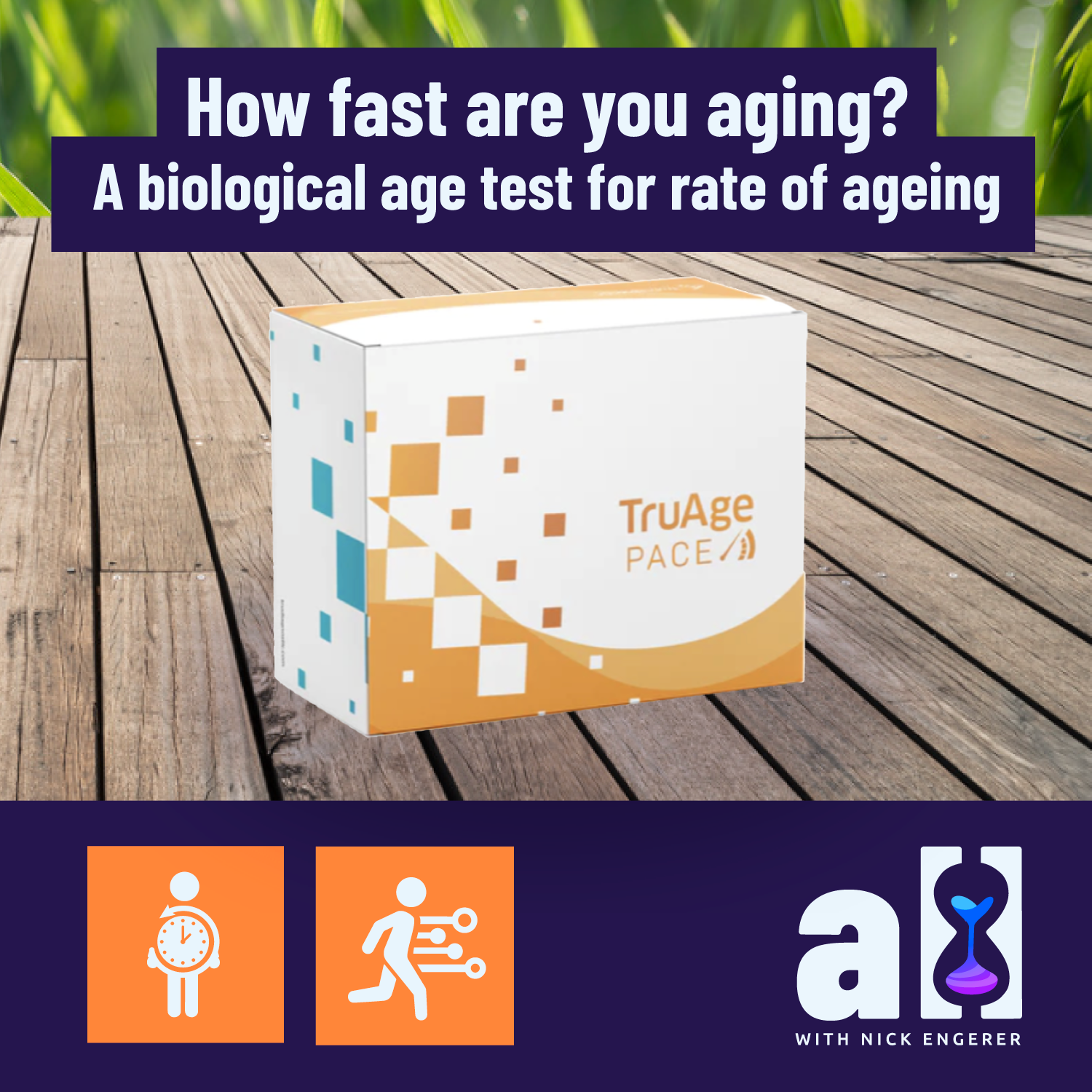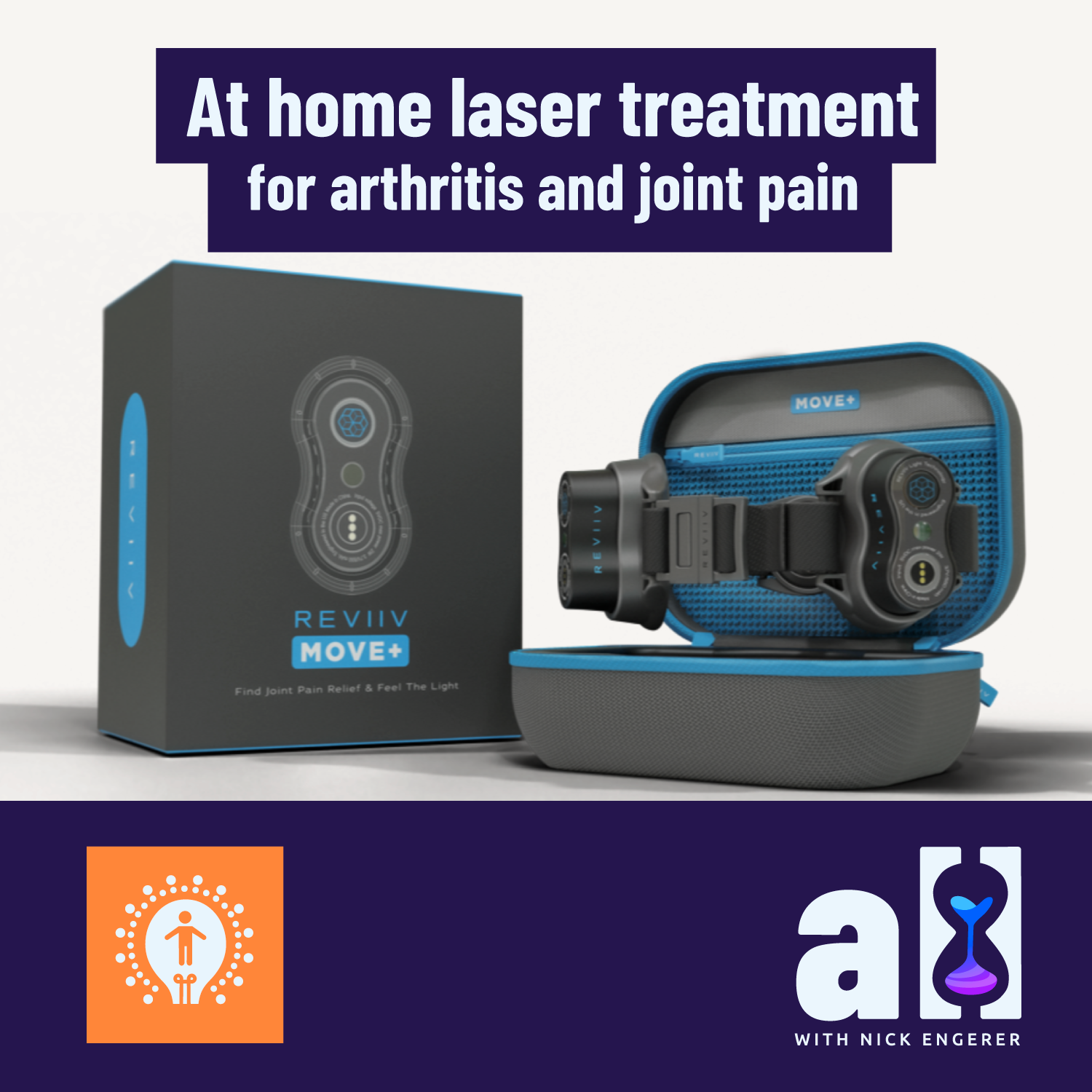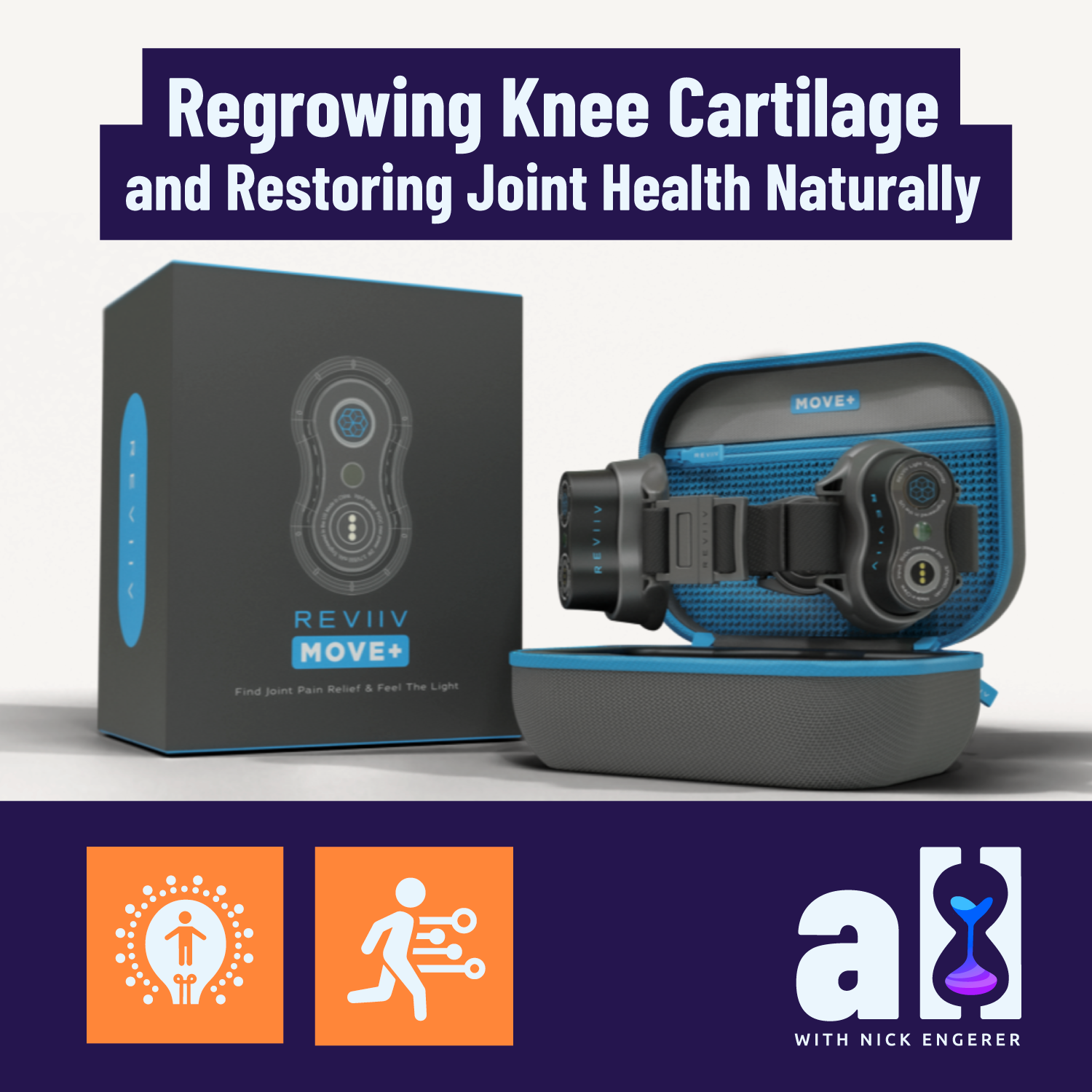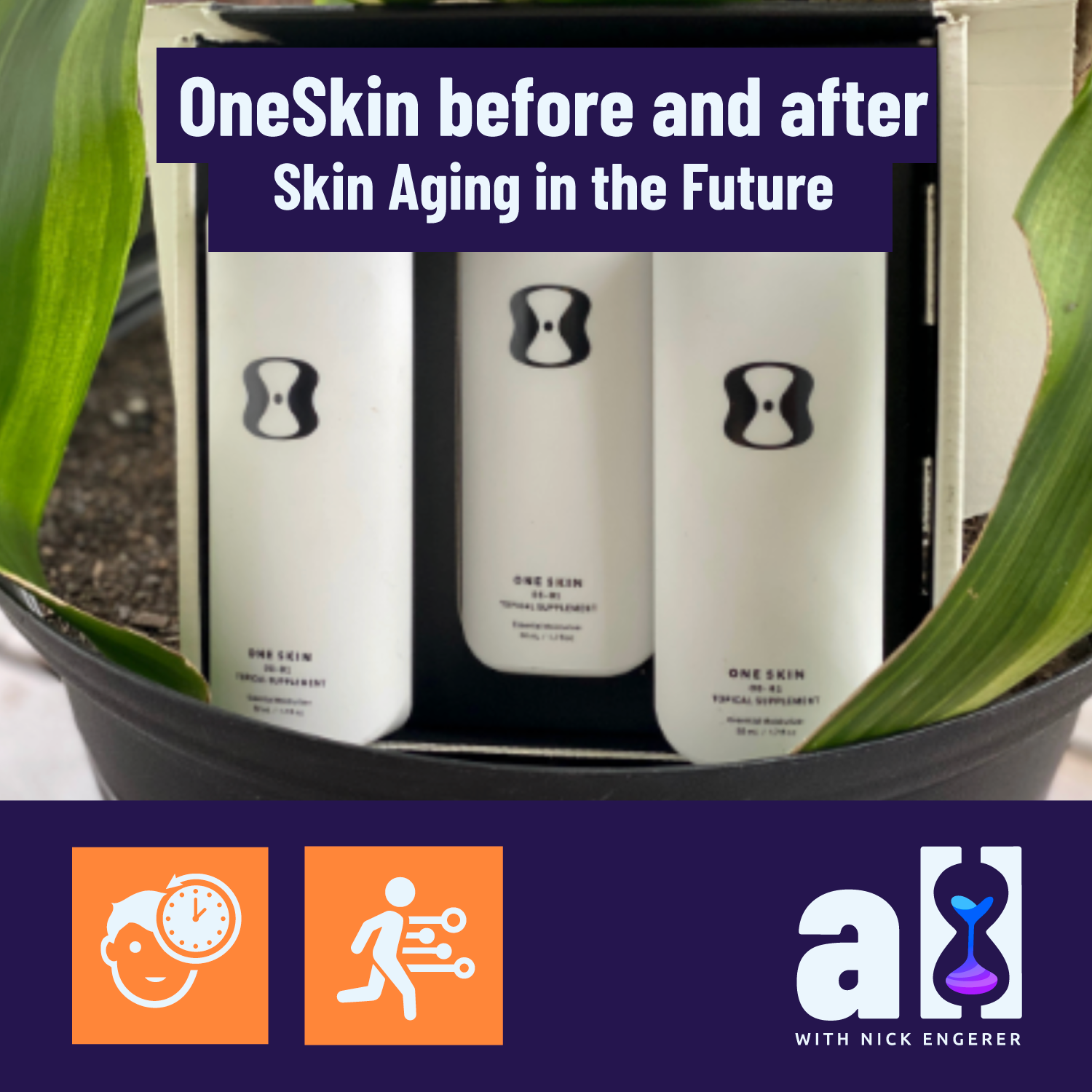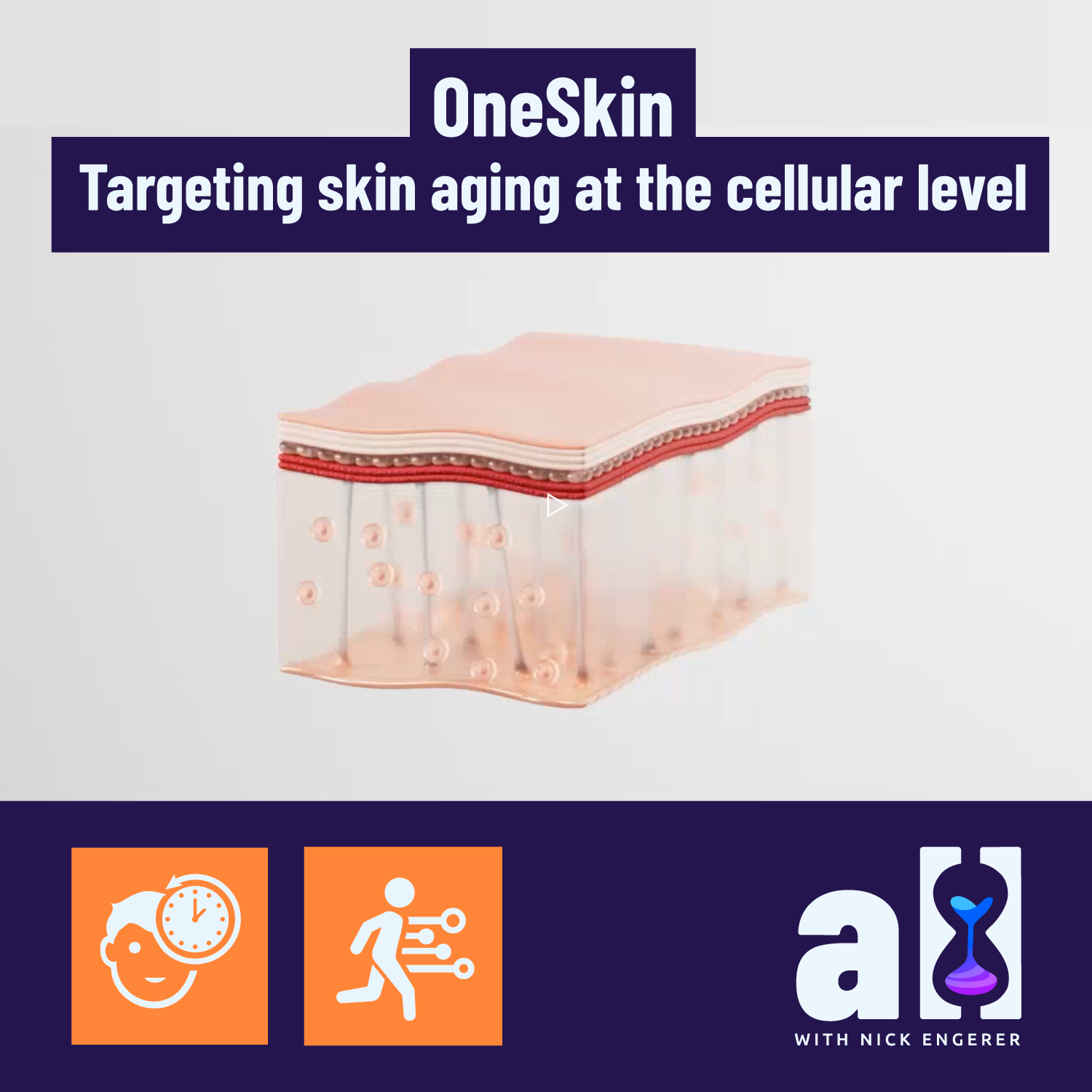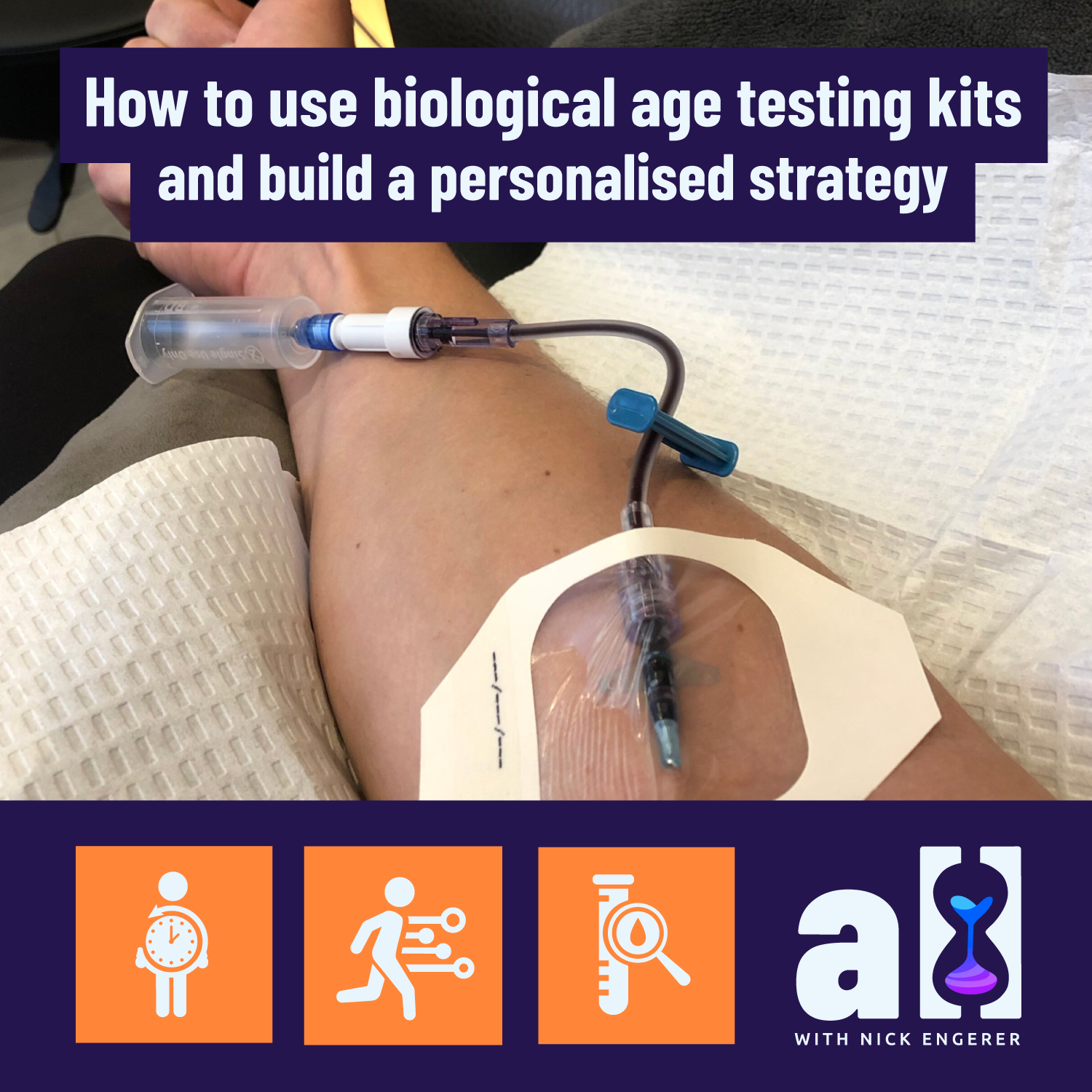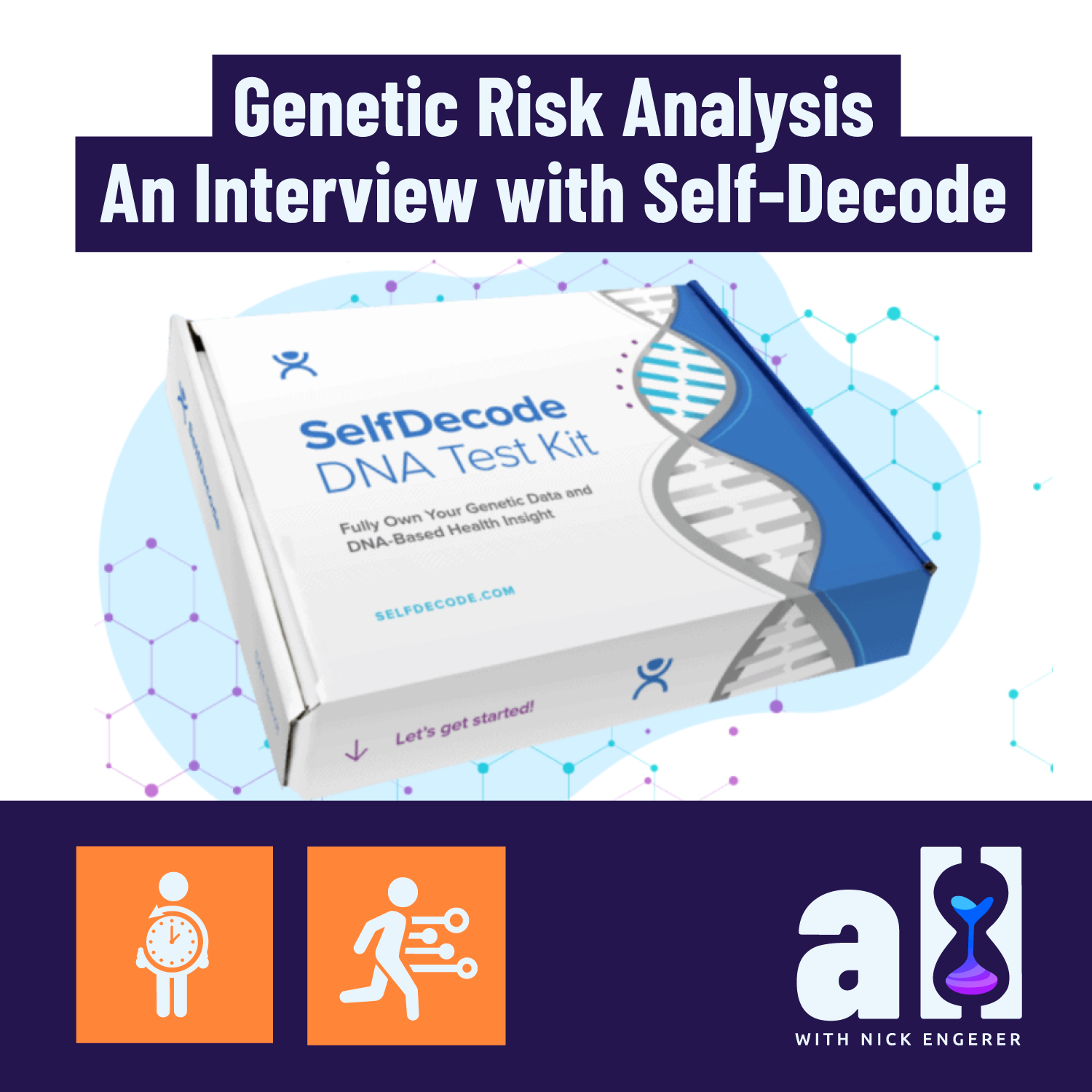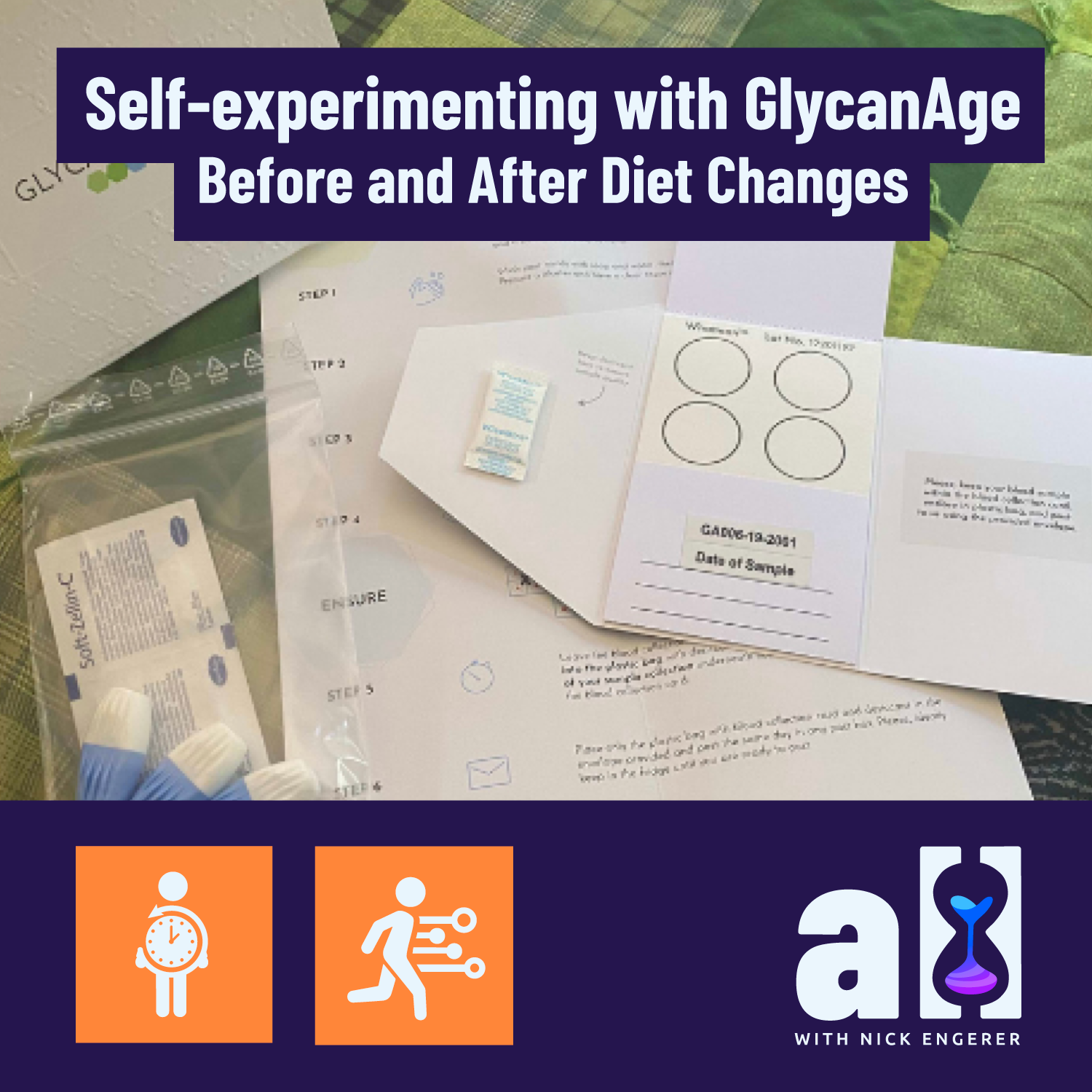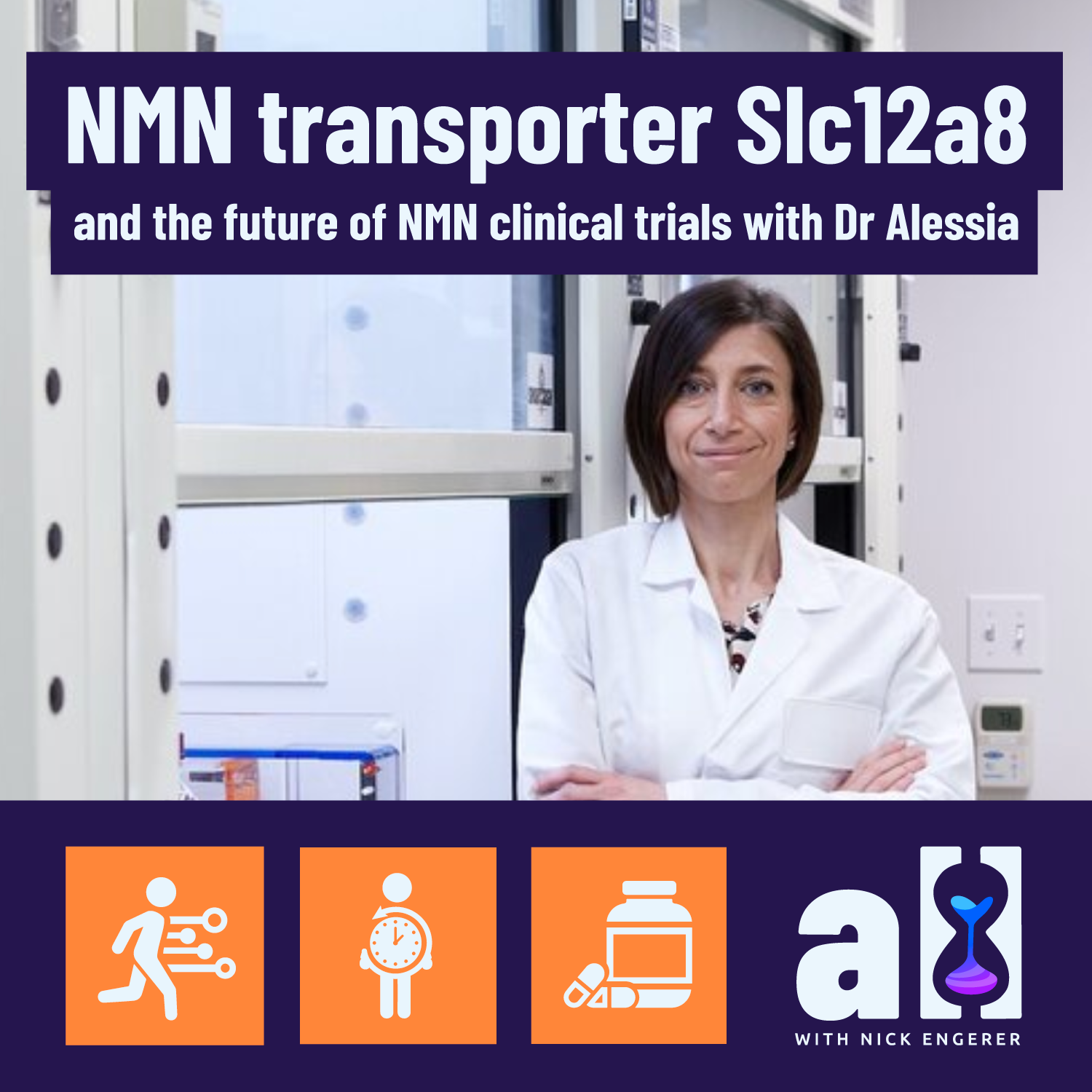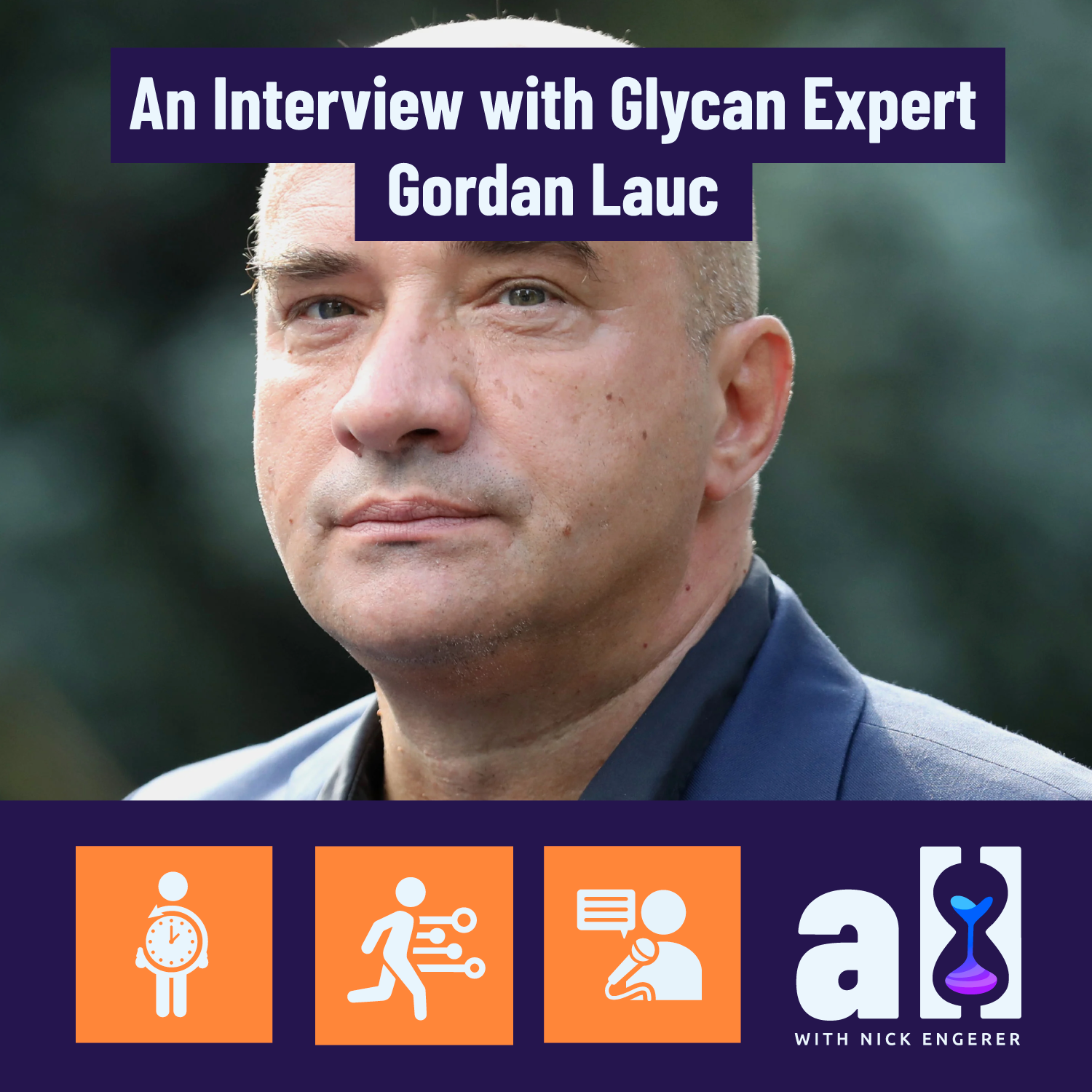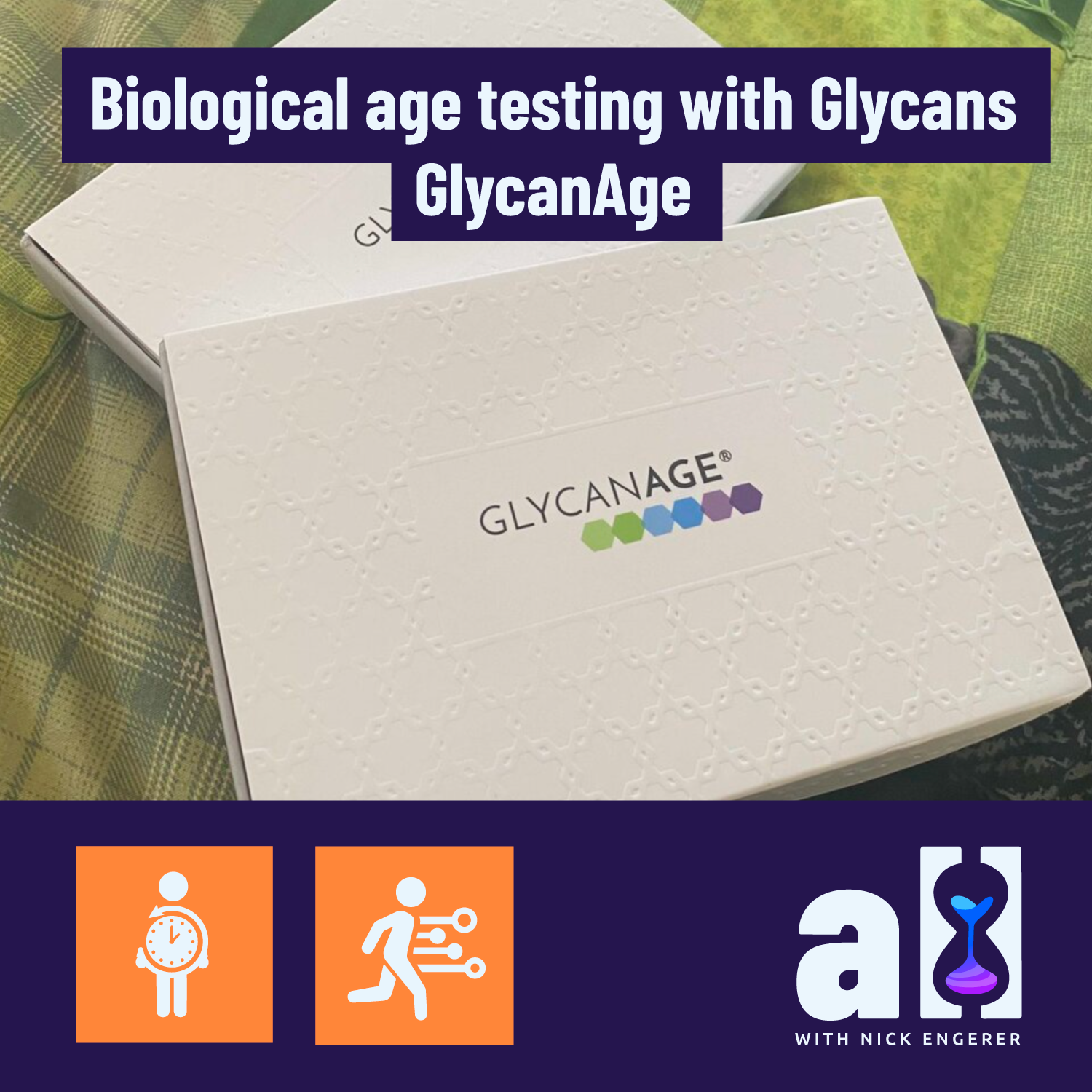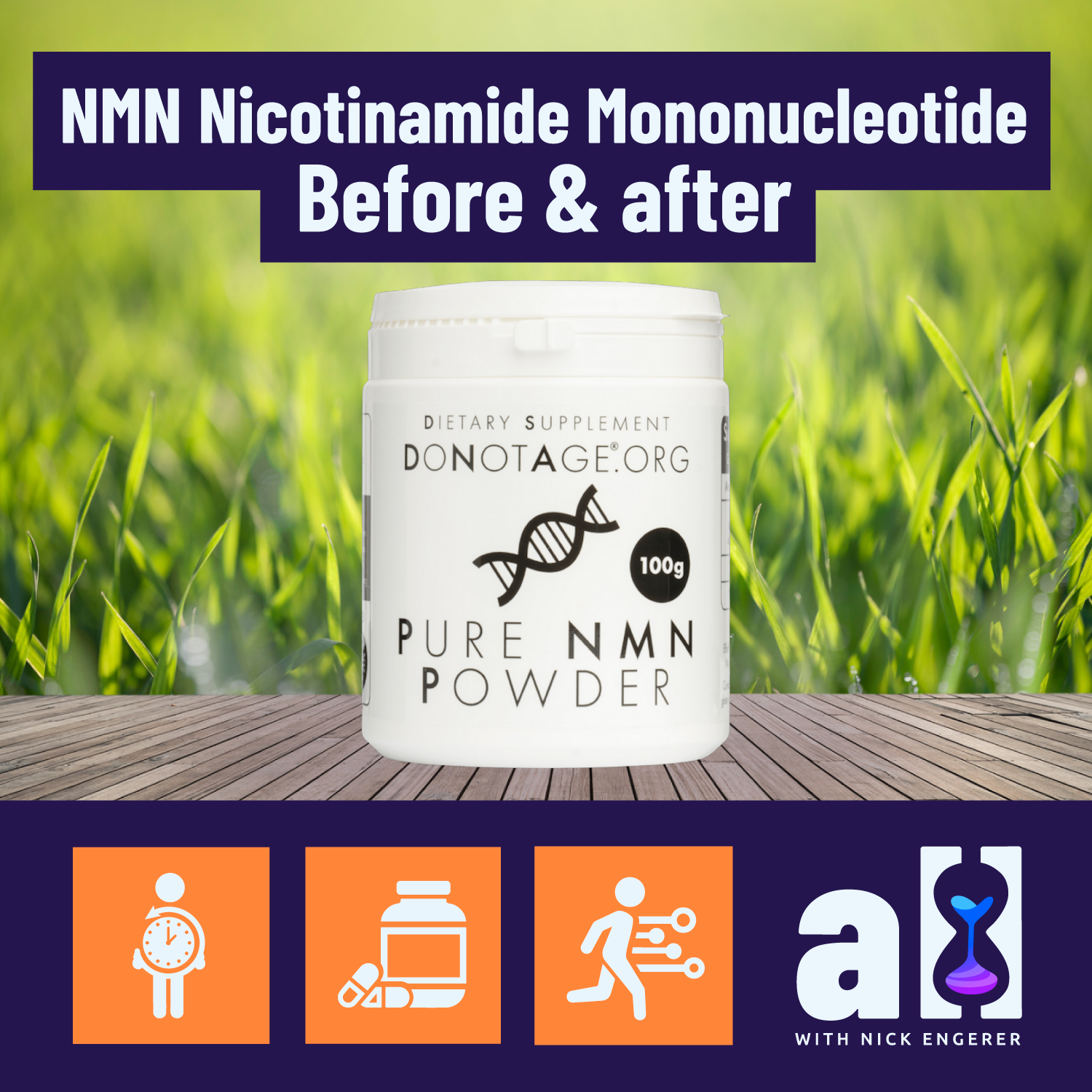AKG supplement benefits your biological age? An Interview with Dr. Yelena Budovskaya of TruMe Labs
AKG supplement benefits - A younger YOU?
The AKG supplement “Alpha Keto Glutarate" has a wide array of benefits:
It improves muscle growth and athletic recovery
Delays fatigue in sport performance
Reduces muscle breakdown during exercise
Improves the health of skin by increasing collagen production
May improve bone density
Appears to improve immune function
Scavenges excess blood nitrogen and ammonia, improving detoxification
But perhaps most excitingly, recent evidence shows that it just might make you younger.
For many, this is a startling claim, so let us explain it in more detail.
First, as we will explore in our expert interview today, we can now measure biological age - meaning how old your body is, biologically (rather than just chronologically) - at home for only $100.
And second, in both animal models and in humans, AKG supplementation has been found to:
Improve the biological age of 40 humans by a median of 8+ years (clinical trial)
Change gene expression (epigenetics) to a younger state
Alter cellular signalling to be more youthful
Possibly be reducing wrinkles
May be reversing or delaying hair greying (in mice evidence is strong, in humans, anectdotal)
This is nothing short of groundbreaking information for wellness enthusiasts and longevity hackers everywhere.
If we’ve managed to catch your attention, please keep reading!
Alpha Keto Glutarate supplement benefits - The why and how
Alpha Keto Glutarate is a pivotal molecule for your energy metabolism (interacts with the Krebs cycle).
The TruAge Explorer test kit. From only $100USD using the discount code ‘alongerlife’.
It is produced in your skeletal muscle and is involved in the balance of many key processes that regulate levels of carbon, ammonia and nitrogen across the body.
The reason that the AKG supplement seems to be involved with regulating aging is that the levels of Alpha Keto Glutarate decrease with age. This means that many cellular functions do not perform optimally, with many knock-on effects.
By supplementing with AKG, we may be delaying these effects significantly.
We’ve recently composed a more thorough review of AKG supplementation which you can read here.
As we move ahead, we are going to focus on the technology you can use to test whether or not AKG improves your own biological age and understand in a bit more detail why AKG supplementation might be one of the most powerful longevity interventions you can try at home.
AKG supplementation and biological age - From expert Dr Yelena Budovskaya
“AKG is actually balancing a basic metabolic process within your body, specifically the Krebs cycle...
What we see with alpha ketoglutarate is it influencing not just the methylation process, but also the methylation of certain sites associated with younger age.
Another example are the molecules called integrins that are key parts of our skin health... People do report less wrinkles and much better quality of skin.”
At A Longer Life, we are fascinated by all things related to longevity technology. We define this sector as anything tech that is helping you stay healthier for longer.
In our post today, we are focusing on the intersection between two such technologies.
Calcium Alpha-Ketoglutarate - a longevity supplement, which we source from DoNotAge.
And, biological age testing, specifically the most affordable high quality offering on the market - the TruAge Explorer from TruMe Labs.
The unique nature and power of this combination cannot be understated. Here we have two technologies which together have been shown in clinical research, to improve the youthfulness of 40 (out of 42) human subjects.
The question is then of course - could it do the same for you?
The fantastic news is that both of these technologies are available to you in the safety and comfort of your own home.
With a bit of careful forethought, you can run your own self-experiment to see if AKG can improve your biological age for only a few hundred dollars (with our unique discount codes).
To understand how this all works in more detail, we reached out to CEO and Co-Founder of TrueMe Labs, Dr Yelena Budovskaya to learn about how biological age testing works and why Alpha Keto Glutarate appears to be so powerful for maintaining your health as you age.
Let’s hear what she has to say…
NOVEMBER 2023 UPDATE:
Nick has now completed his 9 month self-experiment with Ca-AKG. Read the results here!
When you buy through our links, we may earn a commission. Thank you for supporting our business
This interview was conducted in November 2022 over Zoom and is an audio transcript with minor edits for clarity, brevity and correctness.
Alpha Keto-Glutarte, biological age & more
A Longer Life (ALL):
Yelena, thank you so much for joining us today, we're really excited to talk with you about biological age testing. You've co-founded TruMe Labs and you offer the TruAge Explorer test kit.
We might hear about biological age testing all of the time, but it's still a new concept to most people. And it's fundamental for the rest of this discussion.
An important important place to start: how do we determine biological age?
Yelena Budovskaya (YB): Biological age is the age an individual would be if they lived a perfectly healthy life, and did not take any anti aging supplements. His physiology will be representative of that generic age group. Your biological age is the physiological state of your body, not the years by calendar.
Interview excerpt: Biological age testing - how it works, what it means (in three minutes)
Biological age - How young you are on the inside
“Your true biological age... might be a little bit behind... or it might be faster than your chronological age. But in any case, it is more representative of your health...”
LB: In that way, we're looking at an age that tells you what you “look like” biologically, not necessarily what the clock says. But instead, comparing you to other people than other populations saying, do you look older or younger at a cellular level?
What would you add to that?
YB: We look at how your cells and in particular how your DNA looks after all you put it through over the years. How that information is written on your DNA is reflecting your physiological state.
This physiological state is your true biological age. So it might be a little bit behind your chronological age. It might be faster than your chronological age. But in any case, it's more representative of your health rather than your calendar years.
 |
Biological age reveals how old you really are - for ONLY $100USD
LB: So ‘biological age’ is comparing your biology with other healthy individuals in your age group to see how you stack up in terms of biological years accumulated or not accumulated.
In this space, we've had biological age testing for a few years now, but they've traditionally been quite expensive, costing $400-$500 US dollars per kit. One of the most attractive aspects of the TruAge Explorer biological age test kit is that it's very affordable.
Talk to us about the innovations that are occurring at TruMe Labs in terms of biological age testing. How can you offer a biological age kit for only $100 US dollars?
Speaking of supplements - Our Founder Nick tried the supplement Nicotinamide Mononucleotide and measured biological age before and after. Curious? So were we… read the post!
YB: Our journey actually started quite a while ago. I spent so many years studying the natural genetics of the aging process.
One of the things that I noticed is that we cannot stop human beings from aging. But nor can we stop them from trying to extend their lifespan - people are always going to be searching for the answer to their aging process.
With the expansion of internet and social media what's happened is more individuals are reading new innovative science in longevity and they think “Okay, I'm gonna start taking that supplement tomorrow. If it works on mice, it should work on me”.
When I first started in this field, it shocked me to see a lot of people who take a lot of supplements without really checking whether or not it's actually working for them.
Self-experiments & biological age tests
LB: It is so refreshing to hear you say this. Part of our philosophy at A Longer Life is to guide people to know the answer to what works for them! Go on.
“When I first started in this field, it shocked me to see a lot of people who take a lot of supplements without really checking whether or not it’s actually working for them. ”
YB: Then we start thinking - how can we measure if these interventions works? And of course that means we needed a biomarker of aging. Today, we know many companies are spending the time looking at biomarkers of aging.
I really liked what Steve Horvath, Hanham and other centers in genetics were doing, because it looks like that biomarker was actually very simple to adapt to home testing.
LB: This is referring directly to epigenetic biological age clocks, based on DNA methylation data.
YB: Yes, but DNA methylation is a very dynamic process. We started the development of our test kit with several basic requirements in mind.
Firstly, how can we make our test very accurate. So deviation from the number that we predict, should not be more than five years.
Second, it should be affordable - no more than $120. About the cost of three months worth of vitamins.
Feeling impatient and just want to learn about Alpha Keto-GluTArate and biological age? Just scroll down a few sections!
Third, it should be fast, because the tests that we've previously done take 8 to 10 weeks to complete. We wanted to have a two week turnaround time. And no needles!
LB: That’s a great answer, we can see that affordability was actually just one part of your holistic thinking about how you might produce a quality and low cost kit.
Does the AKG supplement actually work? What about other longevity supplements?
We love the part of the story where you referred to how others were taking supplements without knowing if the are actually working for them. This is precisely one of the things we talk about on A Longer Life, repeatedly.
In your answer you mentioned accuracy - we want to get into some of the details around the accuracy and precision of your test. But first, we’ve just introduced the concept of “epigenetic” age testing where the test is looking at the epigenome and particularly these sites called CpG islands.
These locations control turning the genetic code on or off in our bodies. Please briefly tell our audience a bit about that process of on/off in the epigenome.
If you want to go deeper on biological age clocks, epigenetic aging and what all of these terms mean, check out our interview with Ryan Lewis, Founder at TruDiagnostic.
YB: Even at birth, we already have some level of methylation happening in the body. And as you mentioned, this is the CpG sites on our genome. These CpG sites are located all throughout genome.
In some cases they are in the “promoter region” of the gene. Methylation at these locations prevents the cellular machinery from binding this region before the gene and expressing it.
In some way, epigenetics is a dynamic mechanism instructing the cell to turn on and off genes to fine tune how the genes are working together.
DNA Methylation and biological aging
LB: Why is this turning on/off of genes important for aging/longevity?
You don’t have to use supplements to improve your biological age. Nick did it by adding more plants to his diet, read about it here.
YB: DNA methylation is happening all the time. DNA is methylated and demethylated. Certain genes activate expression and other genes repress the expression.
This is how the body is fine tuning its function throughout life. It can be associated with the biomarkers for almost every single physiological process with the body.
LB: With aging, tracking this process is incredibly complex. Some of the other technologies we looked at for biological age testing might look at hundreds of thousands to millions of points in the epigenome.
However, your biological age test kit has actually boiled it down to looking at just nine locations in the epigenome. Clearly those are very closely related to aging.
Can you help our readers understand how there could be this reduction from millions of points in the epigenome in some of the fancier, more expensive test kits down to just nine points in your TruAge Explorer test?
Low cost biological age testing: How TruMe labs made it happen
YB: When we first studied epigenetic connections to aging, we looked at the whole genome, because we didn't know much. We didn't know where this information was actually kept.
Any model that uses epigenetics to calculate biological age is a statistical mathematical model. It converts DNA methylation data into the number that corresponds to the biological age.
As we have studied this more we have realised that not all the biomarkers are the same. Some of them actually influence and can predict your biological age more. Most others have a miniscule influence on the equation.
We have identified the methylation markers that change with age, which are promoters of those genes. These markers should also be age regulated (changing its expression with age).
When we put these constraints over our algorithm development, we end up only with 30 CpG sites. But still, 30 was too many sites for the affordability and scalability of the process that we were developing.
So we distilled it to the best performers (9 of them). Afters some early testing and improvements, we validated it within a clinical trial setting and we saw that our deviation from the chronological age of the healthy individual was only 3.8 years, which met our accuracy target.
How does TruAge explorer compare to more expensive biological age tests?
LB: What an interesting story to follow. You've described this process of thinking about how to constrain a very complicated problem through the lens of affordability and the very dynamic relationship between gene expression and aging.
You’ve mentioned accuracy again, so let’s discuss this in more detail. You've done a comparison with your kit to the MyDNAge test. That test kit uses a much larger portion of the epigenome (approximately two thousand CpG data points). And yet there's a really strong correlation between the outputs from your algorithm and theirs.
Tell us what that reveals about these nine CpG sites and the way you've just constructed the test?
YB: Well, of course I think it tells you that we're probably found the CpG sites that are more dynamically changing with age and that methylation within those sites is clearly important for measuring a normal natural aging process.
The main reason our accuracy is comparable to another test in the market is because we are actually using different technology.
We don't use next generation sequencing (NGS), because we wanted to keep the cost down. NGS is quite expensive unless you sequence hundreds of patient samples at the same time.
We are instead using single sequencing, which allows us to sequence at a greater depth. In other words we sequence the same region many, many, many times over.
Low cost biological age test, the makings of
LB: Let's help our readers understand in a bit more detail. Just so it's nice and clear.
You've described Next Generation Sequencing, which enables many samples to be computed in parallel. However this is not the route that you've chosen, as you’ve pursued affordability. Explain to us again, what the difference in your single sequencing approach means for the consumer.
YB: What we do is sequence only one sample at a time. From this one sample, one fragment at a time.
Altering CpG sites in action. By sleeping better, Stacey improved her biological age from TruMe Labs. Read their female biohacking guide here!
Let's say we are sequencing nine fragments, the nine CpG sites. This means we sequence each of the CpG sites separately.
For each of the sites, we look separately at all the messages we get to calculate the percentage of methylation at that particular site.
This means we get thousands to tens of thousands of messages that we aggregate together to calculate the percentage over one CpG site.
As a result, we can use statistics over these many messages to see how clean the sample was.
There's one positive side and one negative side of this approach. The positive side is, because we sequence it so deeply, it means that we can actually capture miniscule changes of methylation, which can have acute effects on your biological age.
The negative part is that our test is much more sensitive to your lifestyle changes than tests using the NGS approach.
Is the TruMe Age explorer precise? Repeatable results are key for self-experimentation
LB: Both the price point and the sensitivity to lifestyle changes make the TruAge Explorer a very nice tool for self experimentation.
Read our interview with Ryan Smith at TruDiagnostic to understand the importance of accuracy and precision for biological age testing.
Let's talk a little bit about error and precision in the test kit. We recently discussed these concepts with Ryan Smith of TruDiagnostic. Talk about your test through the lens of accuracy and precision.
YB: Yeah, so we actually tested two aspects of precision and accuracy.
The first was precision. Let's say, I give you five tests today and you collect your saliva across five samples. So the sample is the same, right? It was put in the paper at the same time, and was sent to us in the same envelope. So what is the result is going to be?
We actually tested this quite a bit and the result is that we predict biological age from these five samples to within 3 to 4 months of each other.
Then a second aspect of this is actually a bit tricky but super important to understand. And I'm not sure very many people actually understand it.
LB: Our audience will! Give it to us.
YB: Every single biological age algorithm, including ours, uses the chronological age to standardize your biological age number. This presents an issue - why is the chronological age the standard?
Well, we don't have any other markers right now that reliably would predict that. So that's why we still use it. And this is why I keep bringing up this healthy individual who does not take any anti-aging therapies, who would live a healthy life and overall being healthy in perfect health today. What is their biological age?
We make the assumption that their biological age is equal to their current chronological age.
Then we took individuals between ages 40 to 75 that were absolutely healthy. No chronic diseases, no big problems. When measured the biological age of these individuals (150 of them) we realised that were within plus or minus 3.8 years of that person's chronological age.
This is why we know that even with multiple repeats of the same test, we can say that we can predict person chronological age plus minus 3.8 years.
“We get biological age as a starting point, do something to change the biological age and then compare follow-up results to your first biological age test.
The goal is to make that number smaller (“younger”).”
TruMe AGe explorer: Precise to within 3 months, accurate to within 4 years
LB: This is a really fascinating point that you're making. We are going to try to say it back to you in different terms.
You're saying here is that to know how “accurate” a biological age test result, we have to find a compare that to a source of truth. When we consider “what is the right answer?” or what is the “true age” of a given person, TrueMe Labs construct this by looking at both the biological age and chronological age of many healthy individuals across different ages, statistically.
Here, you found an accuracy of plus or minus 3.8 years.
YB: Exactly. But I want to add to that.
If you personally are taking a biological age test, the most important thing is actually comparing your own results after an intervention. We get biological age as a starting point, do something to change the biological age and then compare follow-up results to your first biological age test.
The goal is to make that number smaller (“younger”).
AKG supplement benefits video: Reducing biological age
AKG supplement benefits for biological age with Dr Yelena Budovskaya of TruMe Labs.
LB: This is great, because you're coming back around to the concept of self experimentation.
We believe this is true value of biological age tests. They are giving you a reference point from which to improve.
This is why it's so important to pick a kit that you can afford that you have confidence in, and to keep using it. Because you get your baseline result and then try to improve and see what works for you.
We have a really great example in the literature of this - your company the TruMe Labs technology worked participated in a clinical study published in the journal Aging back in 2021.
November 2023 Update: Nick’s 9 month self-experiment with Ca-AKG results are in! See how much his biological age improved.
There were 42 participants self-experimenting with an alpha ketoglutarate supplement (AKG), which we've just recently written about on the blog. Your TruMe Explorer test kit had an important role in that study.
Can you tell us about this study?
YB: This study was done in collaboration with Ponce de Leon Health, who are producing the akg supplement. They wanted to give their clients the opportunity to be sure that their product works.
In this study, the result showed that so many of the participants actually decreased their biological age significantly. They also reported that they don’t have gray hair anymore and that their skin health improved.
We saw that on average there was 8.8 years of healthy lifespan reversal. Only two people actually did not improve their biological age.
AKG supplement benefits: Why it works on biological age
LB: We love this. We think this is the longevity science of the future, particularly as longevity technologies move faster and faster.
This is why finding a kit that we can use for self experimentation is so important.
Score a 10% discount of high quality, third party tested Alpha Ketoglutarate from DoNotAge.
How do you think the alpha ketoglutarate supplement is working on these nine CPG sites in a way that improves biological age? What’s happening here?
YB: I think the AKG supplement is actually balancing a basic metabolic process within your body, specifically the Krebs cycle. AKG is also important for increasing the activity of demethylase, which is the enzyme that the methylate the genome.
What we see with alpha ketoglutarate is it influencing not just the methylation process, but also the methylation of certain sites associated with younger age.
Another example are the molecules called integrins that are key parts of our skin health. They are important for wound repair and skin elasticity. We observed that some of those markers actually methylated more with alpha ketoglutarate.
Maybe that's why there's such a great effect on skin. People do report less wrinkles and much better quality of skin.
The future of biological age testing
LB: Thank you for diving into that. Our audience loves looking after their skin health!
As we move to close the interview, can you share us your your vision for biological age testing? Where is it going over the next five years? What will become possible?
YB: We think that the most important thing right now is not actually making more precise biological age measurements.
Instead, we intend to expand our portfolio with genetic tests which give you information is how your DNA by drivers of aging. For example, how you are are affected by your diet taken or by the air you breathe, or your stress levels, or level of inflammation in your body. This could also included your hormone status.
We are going to be combining epigenetic and genetic tests together to deliver this information. So this is where we're heading next.
Dr Yelena Budovskaya’s longevity strategy
“I also finally tested alpha ketoglutarate on myself. It actually did work and I love it! ”
LB: That's an exciting vision. We love that you have this idea of combining different types of data in practical way for people to influence their longevity, at ho
We're going to wrap up the interview here. But before we go, we'd like to ask every guest to just share one or two things that they do to look out for their longevity each day.
Hear from our Founder Nick on biological age testing and how you can change diet, sleep, exercise and stress to improve yours! Read more
YB: Personally, I have always been fighting with weight loss. I was also guilty of taking too many supplements.
Now I practice intermittent fasting and am trying to get my feeding window to just six hours a day. It seems to work great for me. I like the effect this is having on my body.
I also finally tested alpha ketoglutarate on myself. It actually did work and I love it!
Everything else I am trying, I aim to be very thoughtful and self-experimenting with one intervention at a time.
LB: Thank you for your answer Yelena, and thank you again for joining us on A Longer Life today. It was a pleasure.
YB: Thank you. I'm looking forward to see what result you get from your AKG self-experiment!
 |
FDA & TGA DISCLAIMER
This information is intended for educational purposes only and is not meant to substitute for medical care or to prescribe treatment for any specific health condition. These blog posts are not intended to diagnose, treat, cure or prevent any disease, and only may become actionable through consultation with a medical professional.



